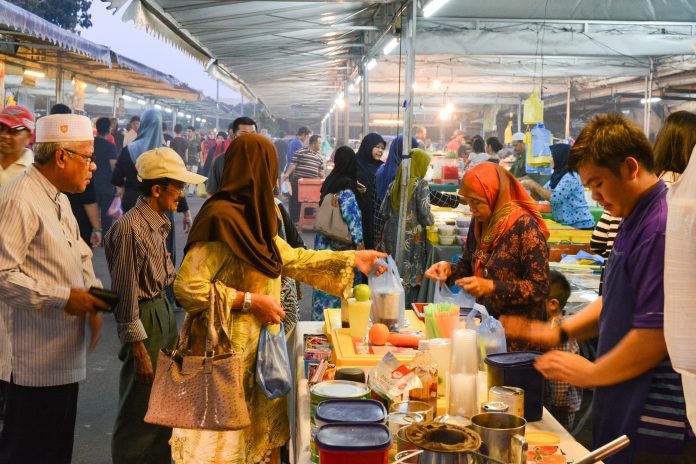Brunei has finalised the implementation of a Shariah Penal Code that introduces cruel punishments such as death by stoning for same-sex sexual acts and amputation for robbery
Stephen Cockburn, Deputy Director of Global Issues at Amnesty International, said:
“This new penal code allows punishments such as amputation or death by stoning which are unspeakably cruel and have no place anywhere in the world.
“We are alarmed that the code criminalises behaviour that should not be considered crimes at all. The international community must continue to condemn Brunei’s decision to put these cruel penalties into practice.
“The Brunei authorities must refrain from implementing these laws and must take necessary steps to repeal.”
Shariah Penal Code and corporal punishment
These punishments are provided for in newly-implemented sections of Brunei’s Shariah Penal Code that will come into force today.
Brunei’s Shariah Penal Code does not replace civil law but is expected to operate alongside it – from information available, each case requires an initial decision to determine whether it should be prosecuted under civil law or Shariah law.
Under international human rights law, corporal punishment in all its forms, such as stoning, amputation or whipping, constitutes torture or other cruel, inhuman or degrading punishment, which is prohibited in all circumstances.
UK Minister of State for Asia, Mark Field said:
“I am disappointed that hudud punishments under the Sharia Penal Code were introduced in Brunei today. This is despite the UK and the international community repeatedly raising our deep concerns regarding these laws with the Government of Brunei.
“The UK strongly opposes capital and corporal punishment, whatever the crime. We strongly support LGBT+ rights and are clear that nobody should face persecution or discrimination because of who they are or who they love.
“The Government of Brunei have reassured us that the Common Law will operate in parallel with the Sharia Penal Code and will continue to be the primary means of administering justice in Brunei. I urge Brunei to ensure that this is the case and to uphold its international human rights obligations.”
Brunei has signed but not yet ratified the UN Convention against Torture and Other Cruel, Inhuman or Degrading Treatment or Punishment.
During the last full UN review of Brunei in 2014, only the Netherlands specifically recommended that the country “Repeal or amend those sections of the Penal Code that prevent LGBT persons from having equal rights.” Several other States, such as Australia and Canada, recommended the suspension of Shariah law or the significant adjustment of implementation to the law in order to meet the basic level of human rights.
Phil Robertson, deputy Asia director of Human Rights Watch said:
“Brunei’s new penal code is barbaric to the core, imposing archaic punishments for acts that shouldn’t even be crimes.
“Sultan Hassanal should immediately suspend amputations, stoning, and all other rights-abusing provisions and punishments.”
Leanne MacMillan, Director of International Campaigns for LGBT Charity Stonewall, said:
“We also can’t lose sight of the fact that the new law does not just affect LGBT people, but also has grave implications for women and girls. The adultery laws could disproportionately target women who are already vulnerable and socially marginalised.
“The situation in Brunei should be a wake-up call to many that the human rights of LGBT people are under threat. There are powerful forces seeking to divide communities and target LGBT people, we must ensure that the world does not go backwards on the progress that has been made in every continent in the past twenty years.
“We’re deeply concerned about where this divisive rhetoric leads us and the impact it could have. Just because progress towards equality has been made, it doesn’t make it permanent.
“In every corner of the world, human rights defenders have worked hard to push equality forward.”
In Brunei, all girls are born without a Nationality. Mothers do not have the ability to confer nationality on their daughters, meaning that only fathers can transfer nationality at birth to their sons. This has been highlighted to the State several times by the global community and internal advocacy groups.
The State continues to accept recommendations for change but stands by the statement that “procedures are available for children of women citizens married to foreign nationals to be accorded Brunei citizenship through an application process.”
Children under the age of 18 are also legally allowed to be trafficked, present in pornography and placed into prostitution. In addition, women suffer a lack of free movement, legal inability to own property and are described as an inferior class of citizen.
The UN Committee on Elimination of All Forms of Discrimination Against Women (CEDAW) said in a 2014 report:
“While noting that the same penalties apply to women and men, the Committee is seriously concerned that women are disproportionately affected by punishment for “crimes” involving sex, and are at a higher risk of being convicted of adultery and extramarital relations, owing to discriminatory investigative policies and provisions on the weighing of evidence.
“In particular, it notes with concern that women will face greater difficulty in collecting the evidence necessary to prove rape, meaning that the fear of being accused of zina is likely to prevent women from reporting rape.”
This kind of subjective evidence assessment will, therefore, make it easy for the Brunei government to apply whatever cruel level of punishment it believes is apt, with little accountability in terms of decision-making.
While Brunei retains the death penalty in law, it is abolitionist in practice. One new death sentence was imposed in 2017, for a drug-related offence.
Long before this new stoning law, Brunei has participated in the severe and callous violation of humanitarian values.
Will this current global attention create significant pressure for change?




![Europe’s housing crisis: A fundamental social right under pressure Run-down appartment building in southeast Europe set before a moody evening sky. High dynamic range photo. Please see my related collections... [url=search/lightbox/7431206][img]http://i161.photobucket.com/albums/t218/dave9296/Lightbox_Vetta.jpg[/img][/url]](https://www.openaccessgovernment.org/wp-content/uploads/2025/04/iStock-108309610-218x150.jpg)






